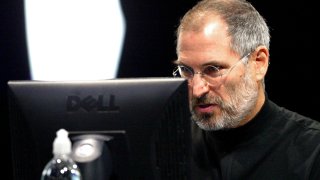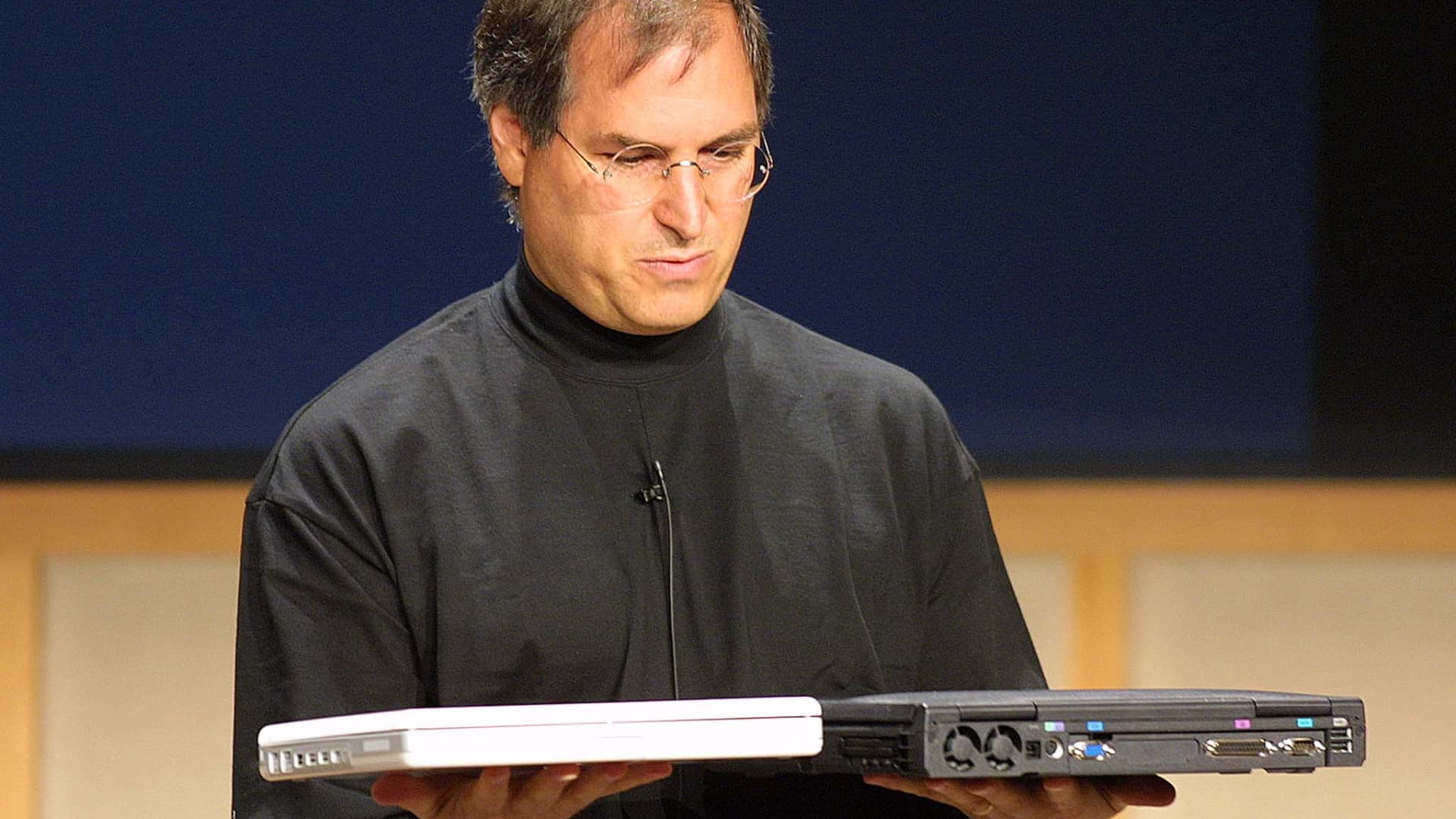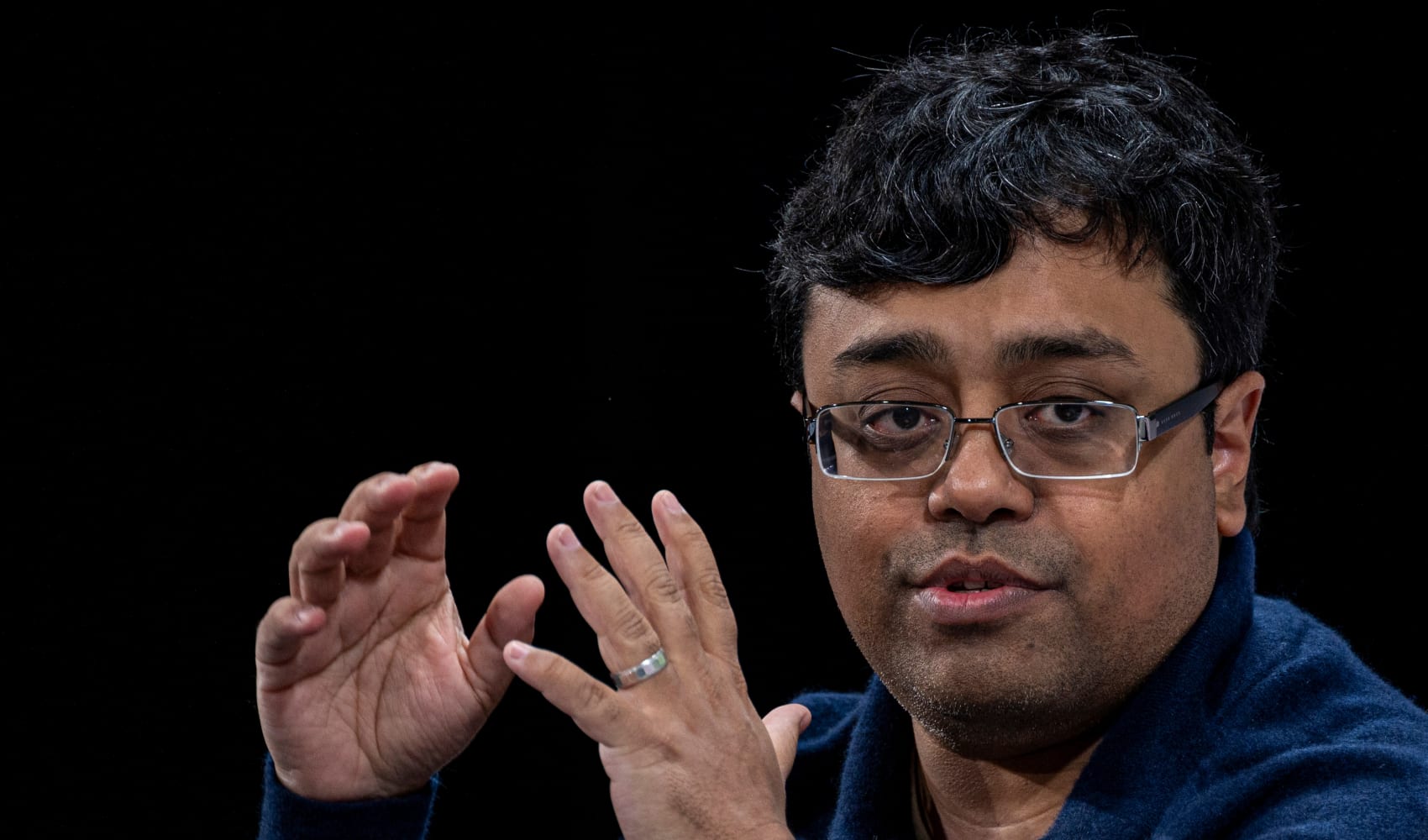
- Steve Jobs died ten years ago Tuesday.
- Michael Dell, who first met the Apple founder as a teenager and become both a rival and friend in later years, says Apple has continued to innovate, but "I think it's certainly different than what Steve would have done."
- Dell also shared with CNBC his outlook on PC demand and the chip supply chain shortages, as well as on the future of work as a result of the pandemic: "We all sort of learned work is something we do, it's not a place."
Michael Dell and Steve Jobs had their differences. In 1997, Jobs put a picture of Dell with a bullseye over his face on a screen during a presentation after Dell had remarked at an industry conference that Apple should return shareholders' money.
"Michael might be a little upset we've taken something they pioneered and done it a lot better," a peeved Jobs said.
Get San Diego local news, weather forecasts, sports and lifestyle stories to your inbox. Sign up for NBC San Diego newsletters.
In 2003, Jobs used a Dell PC as a prop during an Apple laptop event to show the weight difference.
But these days, Dell — who first met the Apple co-founder in 1980 as a coder teen and used an Apple II back then — is in a reflective mood.
"Certainly amazing how the smartphone, the iPhone has changed all of our lives," Dell told CNBC's "Squawk Box" on Tuesday.
Money Report
"Steve was an amazing leader who changed the industry forever ... changed the way we think about computing. Now we've got 5 billion people walking around in the world today with computers in their pockets and Apple was an enormous part of making that happen," Dell said.
On the tenth anniversary of Jobs' death, which coincides with the publication of the Dell Technologies Chairman & CEO new book on Tuesday — "Play Nice But Win: A CEO's Journey from Founder to Leader" — he remarked on Apple's path of innovation during the past decade, which saw Apple become the first company to reach a trillion-dollar (and then two-trillion dollar) valuation, new Apple sales successes including AirPods and Watch, and the massive growth in its services business.
"Apple's continued to innovate," Dell said. "I think it's certainly different from what Steve would have done. He had a different approach, his own approach. But Apple is an incredible company."
Dell and Jobs ultimately became friends, Dell told CNET this week, and at times throughout the history of the computer industry's rise almost entered partnerships amid their rivalry and the ups and downs experienced by Jobs and Apple: Jobs, in fact, wanted Dell to license Next (the company he founded after being fired by Apple) and Mac operating systems for PCs at various times, according to Dell.
After the iPhone's introduction and the rise of tablets like the iPad, the death of the PC became a major narrative in the tech sector. Things have turned for Dell now, though.
Dell — which battled with Carl Icahn, went private, and then IPO'd again — has seen its shares rise over 200% since the pandemic began, and Dell says the strength of demand will continue, despite the semiconductor shortages. Last quarter's sales growth of 15% was the highest since Dell's re-emergence on the public markets in 2018.
"I think we will have a very strong second half," Dell said. "The demand for our products across the board is super strong."
During the pandemic period, which is nearing two years, Dell noted that lockdowns made organizations all over the world invest heavily in technology. The introduction on Tuesday of Windows 11 will continue a major demand cycle in PCs, with "700 million PCs out there that won't run Windows 11, so there is an enormous upgrade cycle," Dell said.

At a CNBC Technology Executive Council event last Thursday, semiconductor CEO Matt Murphy of Marvell Technology noted that companies, including his own, are having trouble finding enough computers to buy for their employees amid a technology demand curve that is unprecedented.
Dell, who will speak on Oct. 13 at CNBC's @Work Summit, said hybrid work has generated a lot of demand and has been a "big tailwind" for the company.
"Through this last 18 months we all sort of learned work is something we do, it's not a place," Dell said. "Employers are embracing hybrid work and creating a lot of demand for technology and ultimately leading to happier employees and more productivity. It doesn't mean there is not a role for offices, but it will definitely be different in the future and this period has given us a real glimpse of the future in terms of how we can use technology and tools to work from anywhere."
Demand related to cloud infrastructure, edge computing, 5G and cybersecurity have also contributed to sales growth. "All of those are generating demand ... demand is strong, and while there are supply chain challenges, we are doing relatively well," he said. The supply chain issues have impacted Dell, which has been doing "lots of forward buying," he said. But he added, "We do have very high backlogs even though we are shipping more products than we ever have in the past, and lead times for many products are extended."
Dell doesn't see the supply chain issues ending soon. "It will take quite some time for semiconductor capacity to rise to the demand we see out there. ... It's record demand and record shipments even though there are challenges," he said.






